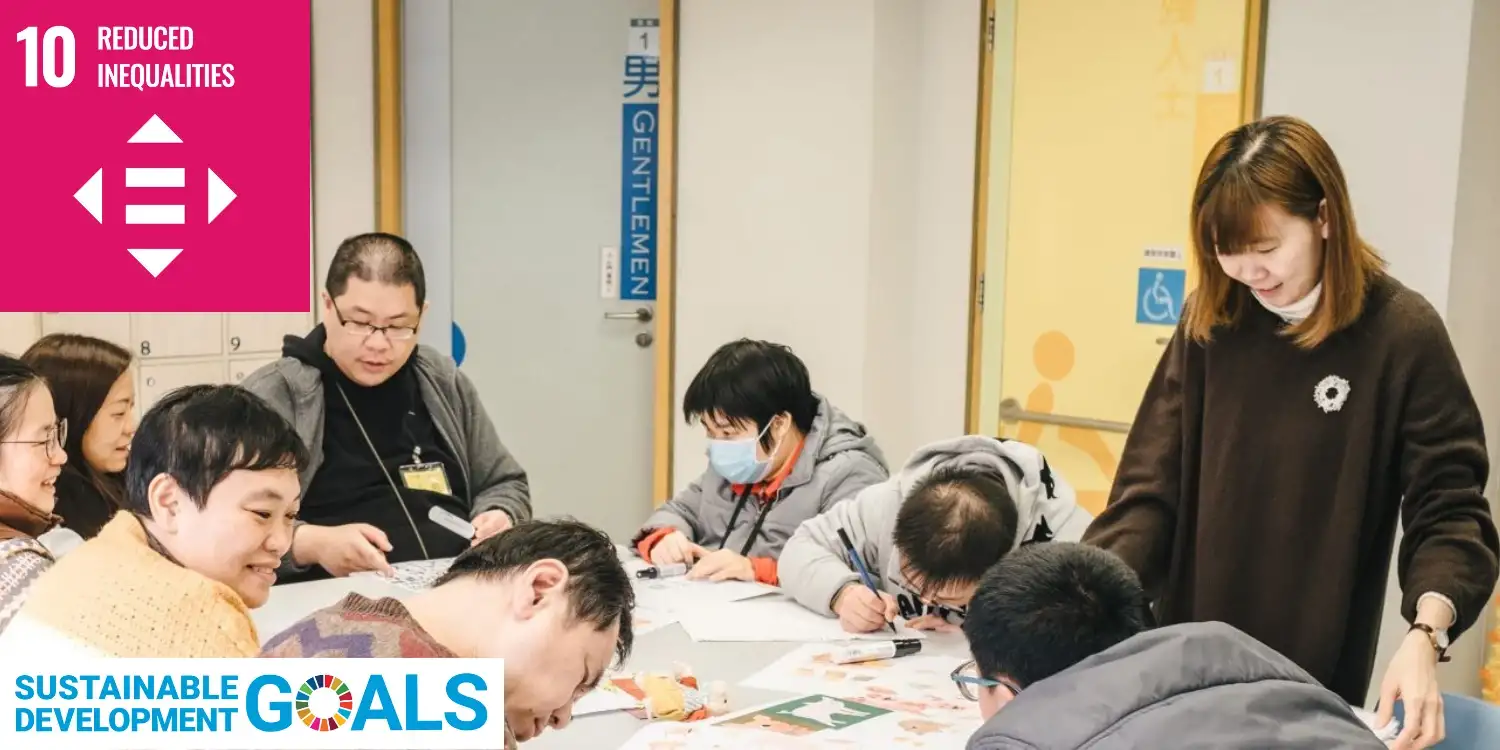細閱只需 4 分鐘
This impact story series reveals the journeys of social entrepreneurs and nonprofit organizers, their ups and downs in achieving different social missions, and potential support they need in order to thrive, especially in measuring impact and getting funding. If you are also an impact maker, hear from them to get inspiration on how to improve your own impact journey.
Episode 1: A socially inclusive studio which designs for and with People with Disabilities (PwDs) — their journey began with a successful crowdfunding campaign to produce tailor-made wallets for 1,500 visually impaired persons.
#SocialEnterprise #InclusiveDesign #Hong Kong
“How can I make use of my design background to help promote inclusivity?
Or simply put, can there be more products specially made for people with special needs?”
Beginning with these simple questions in mind, Comma Leung founded the social enterprise design studio mosi mosi (meaning “nothing to worry about” in Cantonese slang), which promotes human-centric inclusive designs.
Her story started with a genuine empathy and curiosity towards the visually impaired. For her final year project at design school back in 2015, she strived to “understand the users” by observing the daily lives of the visually impaired. She followed a group of visually impaired for 2 months, and in the process, uncovered many of their inconveniences. One of them was the inability to distinguish the face value of bank notes. For example, one of Comma’s subjects, Kit Ying, reflected that she often had to ask shop owners about the value of changes. Not only was it troublesome, she also ran the risk of getting cheated. That was the pain point that Leung decided to solve.
Leung then made use of her design and handcraft skills to create a wallet specially made for the visually impaired — one that enables them to distinguish bank notes based on size measurements in the wallet. After rounds of trial and error and testing with users, a wallet prototype was born. Through a crowdfunding platform, Leung raised HK$300,000 (about US$38,500) in three months to produce 1,500 wallets, and distributed them to the blind people for free. This wallet, dubbed the in:visible wallet, subsequently won Leung numerous design awards, including the Design for Asia Awards and Hong Kong Smart Design Award.
With this encouraging start, mosi mosi gradually evolved into a socially-motivated design studio that empowers the local communities through human-centered inclusive products, service design as well as education in social inclusion of People with Disabilities (PwD). The studio also offers art workshops for PwD, hoping to unleash their creativity. In 2017, the studio won the Social Enterprise Challenge in Hong Kong.

How do you measure your impact?
“On one level, it depends on specific funders’ or the organizer’s requirements. Some measure quantity: number of workshops delivered, number of products launched, number of beneficiaries reached…etc.. These are considered as social “outputs” (note: tangible and measurable results based on impact activities). Outcome-wise (notes: qualitative, long-term results), we also conduct surveys and observe participants’ improvement in understanding inclusivity, creative expression, and sense of satisfaction and acceptance, before and after their participation in our workshops. The in:visible wallet as a product is a good beginning to introduce the concept of inclusive design to the Hong Kong public. Beyond that, we hope that through organizing art workshops for PwD, they can be empowered in the design process and have an outlet for creative expression and enhanced well-being.
Ultimately, impact comes long-term after the “outputs” and “outcomes”. I envision an inclusive community where the general public gains more awareness towards people of differences, and PwDs would be accepted and embraced in different sectors of the society.”
Can you share with us your funding journey and challenges?
“I got my first funding through a crowdfunding platform. I was very lucky to have received ample media attention, which helped me to achieve my funding target in just a few months. I think Hong Kong people are very generous in some way and they are willing to help.
In the following years, I applied for different types of short-term funds, such as the Good Seed organized by The Polytechnic University of Hong Kong and Social Enterprise Challenge (HKSEC). Recently, I also extended our services to corporate clients by producing custom-made corporate gifts, providing them with inclusive solutions. In addition, art workshops are offered for people with different abilities.
One of the biggest challenges is to identify and reach out to suitable funders as there are many of them in the market and each has different requirements.
Another difficulty would be to articulate our impact to funders and potential collaborators. This requires statistics and data, a clear framework as well as good writing skills. I may be a good designer and good communicator, but report-writing and corporate-level presentation are not my strong suits.
Administrative and paperwork required by funders is also a heavy burden to small enterprises like ourselves, as we have very limited human resources.”
What kind of support do you need in terms of seeking funding?
“A centralized platform showing information and resources available out in the market would be very useful. At our end, it will be easier to identify and reach out to suitable potential funders.
It would also be very useful if my project and initiative can gain more exposure, to showcase our products as well as impact stories in a manner that speaks to funders. It can be numbers, or touching, transformative stories.
Administrative support would be crucial as well, such as a more streamlined process when preparing funding reports and pitching. This can make the process much more efficient for both sides.
With these supports, I can be more focused on serving the beneficiaries and improving my services and designs, and at the end, bring more smiles to the people in need!”


